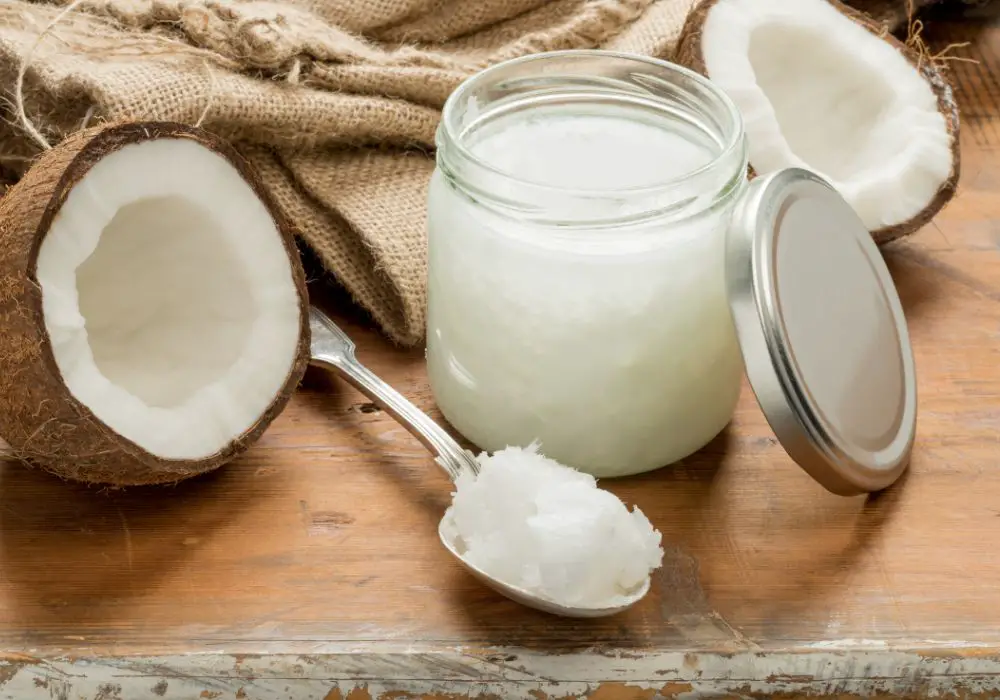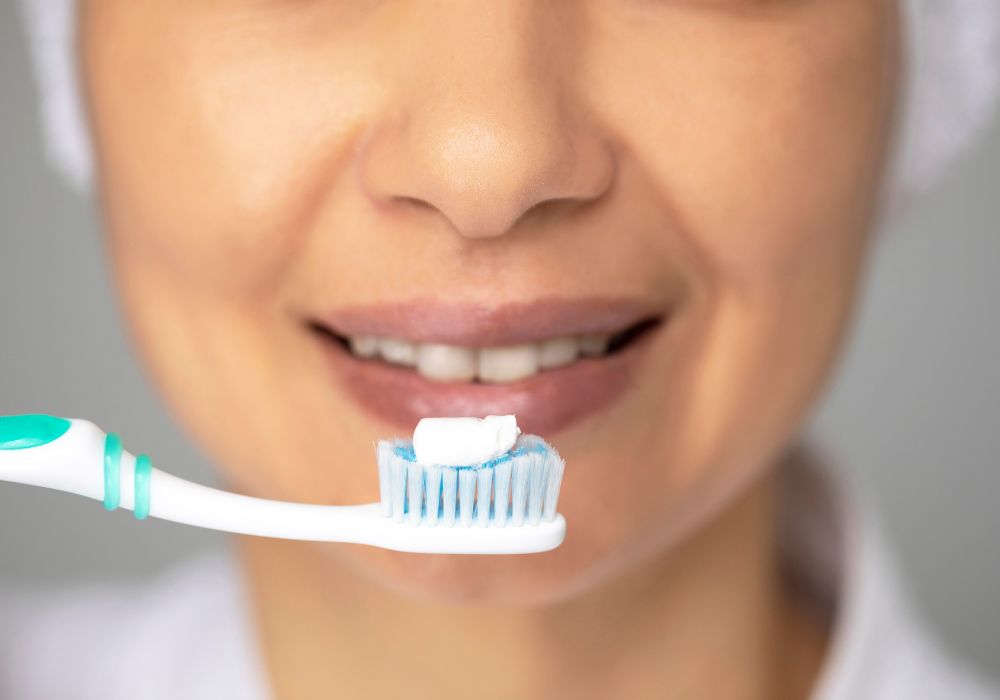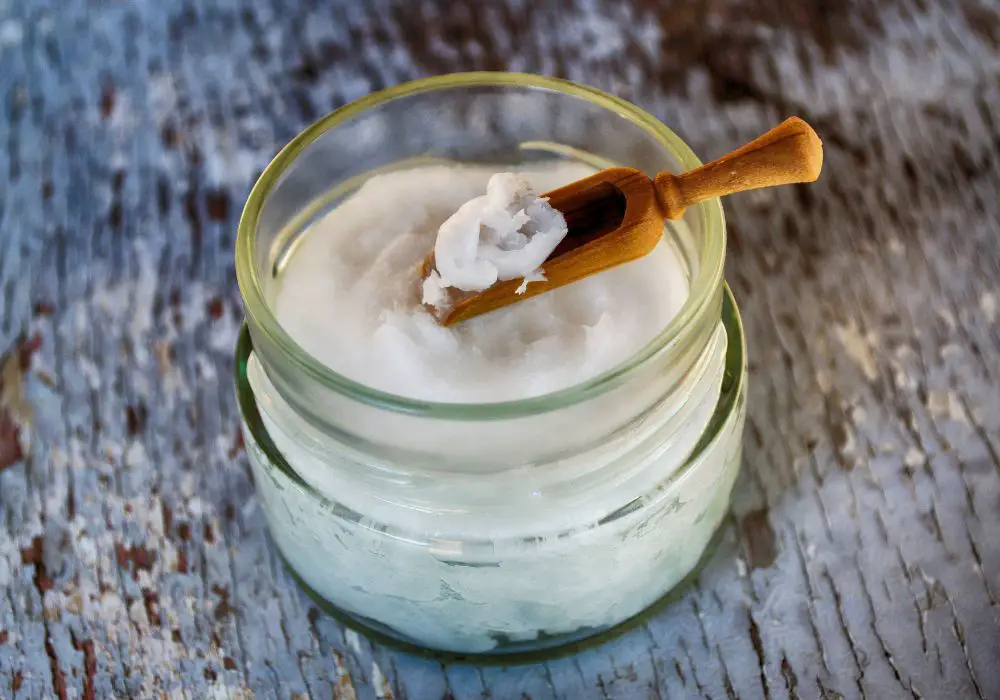Are you curious about whether you can brush your teeth with coconut oil every day? Coconut oil has been gaining popularity in recent years for its potential health benefits, including its ability to promote oral health. Some people even claim that brushing with coconut oil can whiten teeth and freshen breath. But is it safe to use coconut oil as a daily toothpaste replacement?
Recent studies have shown that coconut oil may have antimicrobial properties that can help reduce harmful bacteria in the mouth. This can lead to improved oral health and a lower risk of gum disease and tooth decay. However, it’s important to note that coconut oil should not be used as a replacement for regular brushing and flossing, but rather as an additional tool in your oral hygiene routine.
While coconut oil is generally considered safe for most people to use, it’s important to talk to your dentist before making any changes to your oral hygiene routine. They can help you determine whether using coconut oil on your teeth is right for you and provide guidance on how to incorporate it into your daily routine.
Understanding Coconut Oil
Composition
Coconut oil is a type of edible oil that is extracted from the meat of coconuts. It is composed of a high percentage of saturated fats, which makes it a popular ingredient in cooking and baking. Coconut oil is also rich in lauric acid, a type of fatty acid that has been shown to have antimicrobial properties. This makes it a great ingredient for oral care products, as it can help to promote better oral health.
Benefits
Coconut oil has several benefits when it comes to oral care. It can help to reduce the amount of harmful bacteria in the mouth, which can lead to better overall oral health. Additionally, coconut oil has been shown to help whiten teeth naturally, making it a great alternative to traditional teeth whitening products.
Using coconut oil as a toothpaste can also help to reduce the risk of developing cavities and gum disease. This is because the lauric acid in coconut oil can help to break down plaque and other harmful bacteria in the mouth.
Overall, using coconut oil as a part of your daily oral care routine can provide several benefits. It is important to note, however, that coconut oil should not be used as a replacement for regular dental check-ups and cleanings. It is always best to consult with your dentist before making any changes to your oral care routine.
Coconut Oil and Oral Health

Coconut oil has been used for centuries in traditional medicine, and it is now gaining popularity as a natural remedy for oral health problems. In this section, we will explore the effects of coconut oil on teeth and gums.
Effect on Teeth
Coconut oil has been shown to have a positive effect on teeth. It contains lauric acid, which has antibacterial properties and can help reduce the amount of harmful bacteria in your mouth. This can help prevent tooth decay and gum disease.
In addition, coconut oil can help whiten teeth. It is a natural alternative to chemical teeth whitening products, which can be harsh on the teeth and gums. Coconut oil can help remove surface stains and leave your teeth looking brighter and healthier.
To use coconut oil for teeth whitening, simply swish a tablespoon of coconut oil in your mouth for 10-15 minutes, then spit it out and rinse your mouth with water.
Effect on Gums
Coconut oil can also be beneficial for your gums. It can help reduce inflammation and promote healthy gum tissue. This can help prevent gum disease and other oral health problems.
To use coconut oil for gum health, simply massage a small amount of coconut oil onto your gums for a few minutes each day. You can also use coconut oil as a mouthwash by swishing a tablespoon of coconut oil in your mouth for 10-15 minutes, then spitting it out and rinsing your mouth with water.
Overall, coconut oil can be a great natural remedy for oral health problems. However, it is important to remember that it should not be used as a substitute for regular brushing and flossing. Incorporating coconut oil into your oral hygiene routine can be a great way to promote healthy teeth and gums.
Daily Use of Coconut Oil for Brushing
Coconut oil has become a popular alternative to traditional toothpaste due to its potential oral health benefits. While some people use coconut oil as a mouthwash, others prefer to use it as a toothpaste replacement. Here’s what you need to know about using coconut oil for brushing your teeth daily.
How to Use
To use coconut oil for brushing, scoop out a small amount of solid coconut oil or pour a small amount of liquid coconut oil onto your toothbrush. Brush your teeth as you normally would for two minutes, making sure to cover all surfaces of your teeth and gums. Spit the coconut oil out into the trash, as it can solidify and clog drains.
Possible Side Effects
While coconut oil is generally considered safe for oral use, there are some potential side effects to be aware of. Some people may experience an allergic reaction to coconut oil, which can cause itching, hives, and swelling. Additionally, coconut oil can be high in fat and calories, so it’s important to use it in moderation as part of a healthy oral hygiene routine.
Overall, using coconut oil for brushing your teeth daily can be a safe and effective alternative to traditional toothpaste. However, it’s important to speak with your dentist or healthcare provider before making any changes to your oral hygiene routine.
Scientific Studies and Research

Coconut oil has been the subject of several scientific studies and research to determine its effectiveness in improving dental hygiene. Here are some of the findings:
- One study in 60 adults showed that oil pulling with coconut oil for 10 minutes reduced the levels of Streptococcus mutans, a bacteria that causes plaque buildup and tooth decay.
- Another randomized study in 60 people found a significant reduction in S. mutans bacteria from oil pulling with coconut oil (10 milliliters per day) for 2 weeks.
- In-vitro studies using biofilm models have demonstrated the antimicrobial properties of coconut oil against Streptococcus mutans and Candida albicans.
- A review of literature concluded that oil pulling with coconut oil could be used as an adjunct to normal preventative regimes to improve oral health and dental hygiene, although further studies are needed to determine the level of effectiveness.
While the studies suggest that oil pulling with coconut oil could be beneficial for dental hygiene, it is important to note that more research is needed to determine the full extent of its benefits. It is also important to note that oil pulling should not replace regular brushing and flossing, but rather be used as an additional tool in your dental hygiene routine.
In summary, scientific studies and research provide some evidence that oil pulling with coconut oil can improve dental hygiene. However, more research is needed to determine its full effectiveness. It is important to use oil pulling as an adjunct to regular brushing and flossing, and not as a replacement.
Alternatives to Coconut Oil for Oral Care
While coconut oil has been touted as a natural alternative to traditional toothpaste, it’s not the only option available for maintaining good oral health. Here are some other alternatives you can consider:
Baking Soda
Baking soda has been used for decades as a natural toothpaste alternative. It’s mildly abrasive, which means it can help remove surface stains on your teeth. Baking soda also has antibacterial properties, which can help kill harmful bacteria in your mouth. You can mix baking soda with water to create a paste, or look for toothpaste that contains baking soda as an ingredient.
Hydrogen Peroxide
Hydrogen peroxide is a common ingredient in many teeth whitening products. It’s also effective at killing bacteria in your mouth, which can help prevent gum disease and bad breath. You can use hydrogen peroxide as a mouthwash by diluting it with water and swishing it around in your mouth for 30 seconds to a minute.
Essential Oils
Essential oils like peppermint, tea tree, and clove can be effective at killing bacteria in your mouth and freshening your breath. You can add a few drops of essential oil to water and use it as a mouthwash, or look for toothpaste that contains essential oils as an ingredient.
Xylitol
Xylitol is a natural sweetener that can help prevent tooth decay by inhibiting the growth of harmful bacteria in your mouth. You can find xylitol in chewing gum, mints, and toothpaste.
Remember, while natural alternatives can be effective at maintaining good oral health, it’s still important to brush and floss regularly and visit your dentist for checkups and cleanings.
Consulting with a Dental Professional

If you are considering brushing your teeth with coconut oil every day, it is important to consult with a dental professional first. Here are some reasons why:
- Your dental professional can evaluate your oral health and determine if brushing with coconut oil is a safe and effective option for you.
- They can also help you determine the proper technique for brushing with coconut oil to ensure that you are not causing any damage to your teeth or gums.
- Your dental professional can also recommend additional oral hygiene practices that may be beneficial for your specific needs.
It is important to note that while some studies suggest that brushing with coconut oil may have oral health benefits, more research is needed to fully understand its effectiveness. Therefore, it is important to discuss any changes to your oral hygiene routine with a dental professional before implementing them.
Additionally, if you experience any negative side effects from brushing with coconut oil, such as increased sensitivity or irritation, it is important to consult with a dental professional to determine the cause and appropriate treatment.
Frequently Asked Questions
Is brushing your teeth with coconut oil beneficial?
Yes, brushing your teeth with coconut oil can be beneficial for your oral health. Coconut oil contains lauric acid, which has antibacterial properties that can help reduce harmful bacteria in your mouth. Regular use of coconut oil for brushing can also help whiten your teeth naturally.
Can coconut oil pulling improve oral health?
Oil pulling with coconut oil can help improve oral health by reducing plaque buildup and fighting gum disease. Swishing coconut oil in your mouth for 15-20 minutes daily can help remove harmful bacteria and promote healthier teeth and gums.
What are the best ways to use coconut oil for dental care?
Coconut oil can be used in several ways for dental care. You can use it for oil pulling, brushing your teeth, or making homemade toothpaste. To use coconut oil for oil pulling, swish a tablespoon of coconut oil in your mouth for 15-20 minutes. For brushing your teeth, apply a small amount of coconut oil to your toothbrush and brush as usual.
Does coconut oil help with gum health?
Yes, coconut oil can help improve gum health by reducing inflammation and fighting harmful bacteria. Regular use of coconut oil for oil pulling or brushing can help promote healthier gums and reduce the risk of gum disease.
Are there any risks associated with using coconut oil for dental care?
While coconut oil is generally safe for dental care, there are some risks to be aware of. Swallowing large amounts of coconut oil during oil pulling can cause digestive issues. Also, using coconut oil as a replacement for toothpaste may not provide adequate fluoride protection, which is important for preventing tooth decay.
Can coconut oil replace toothpaste for daily brushing?
While coconut oil can be used for daily brushing, it should not be used as a replacement for toothpaste. Toothpaste contains fluoride, which is important for preventing tooth decay. However, you can make homemade toothpaste by combining coconut oil with baking soda and essential oils for added benefits.






